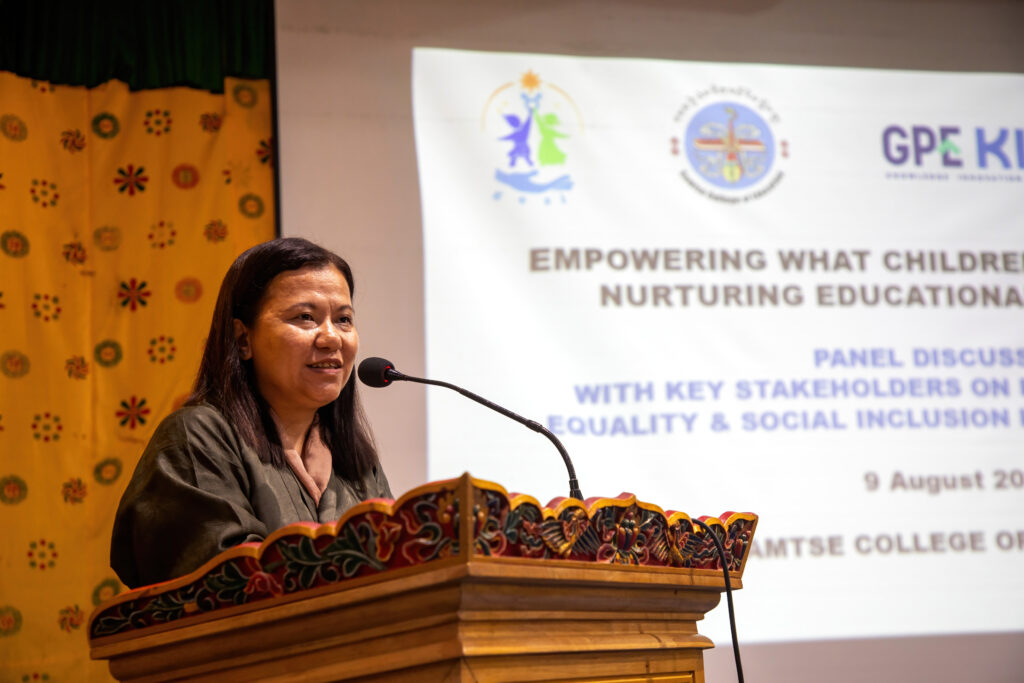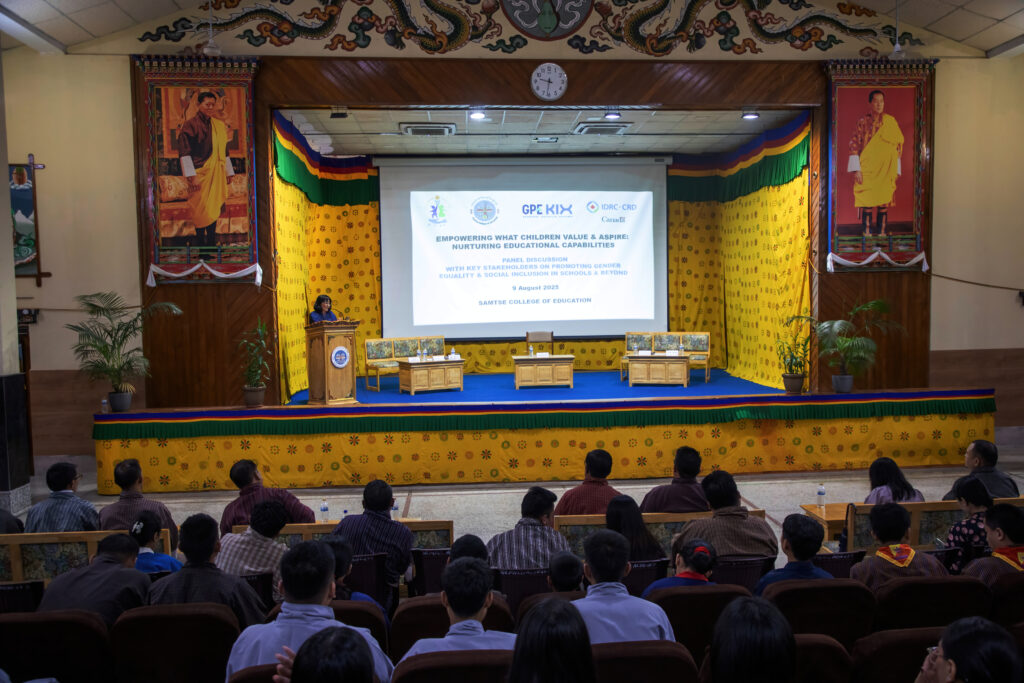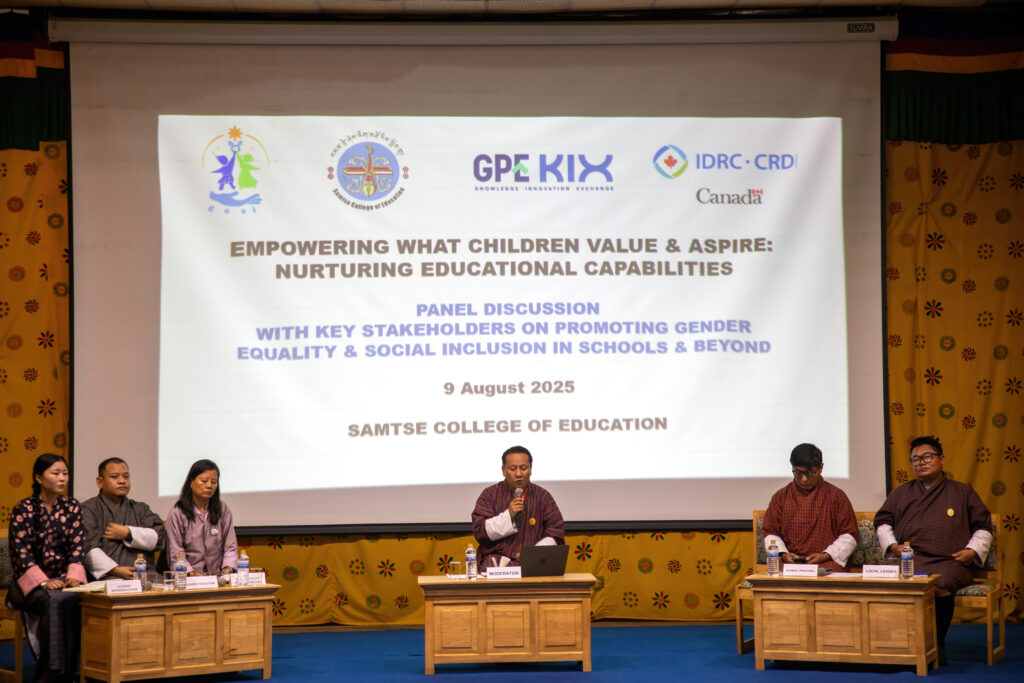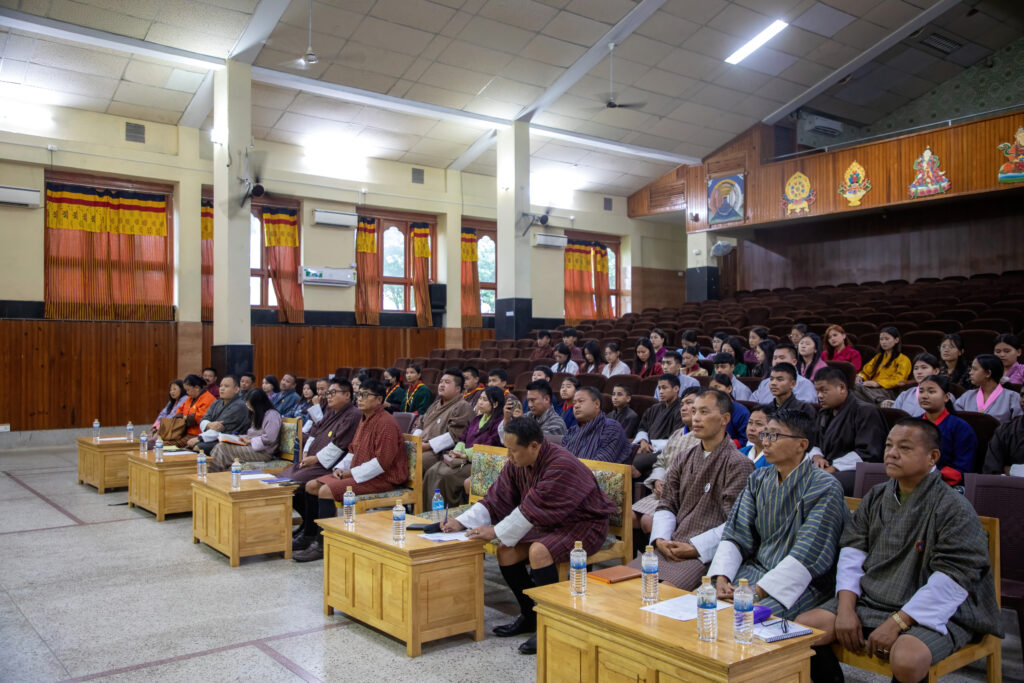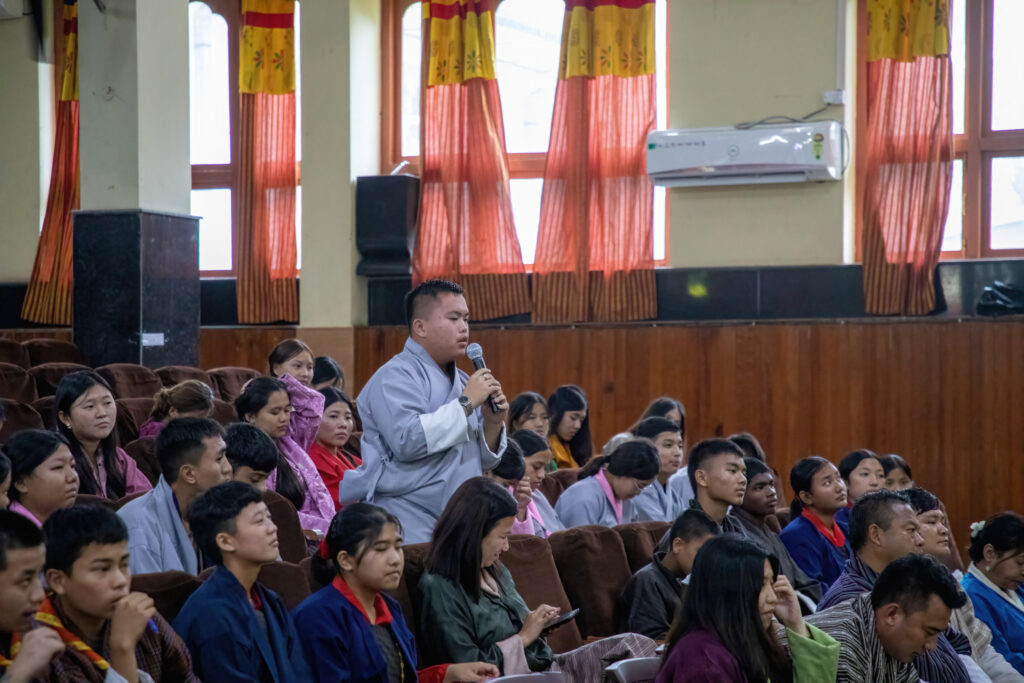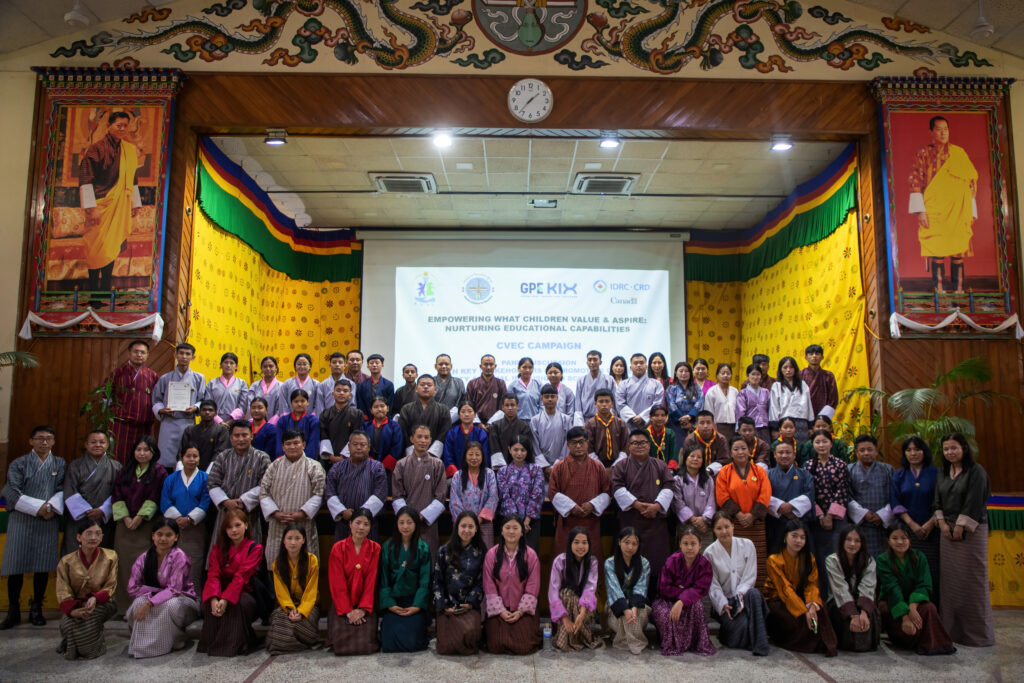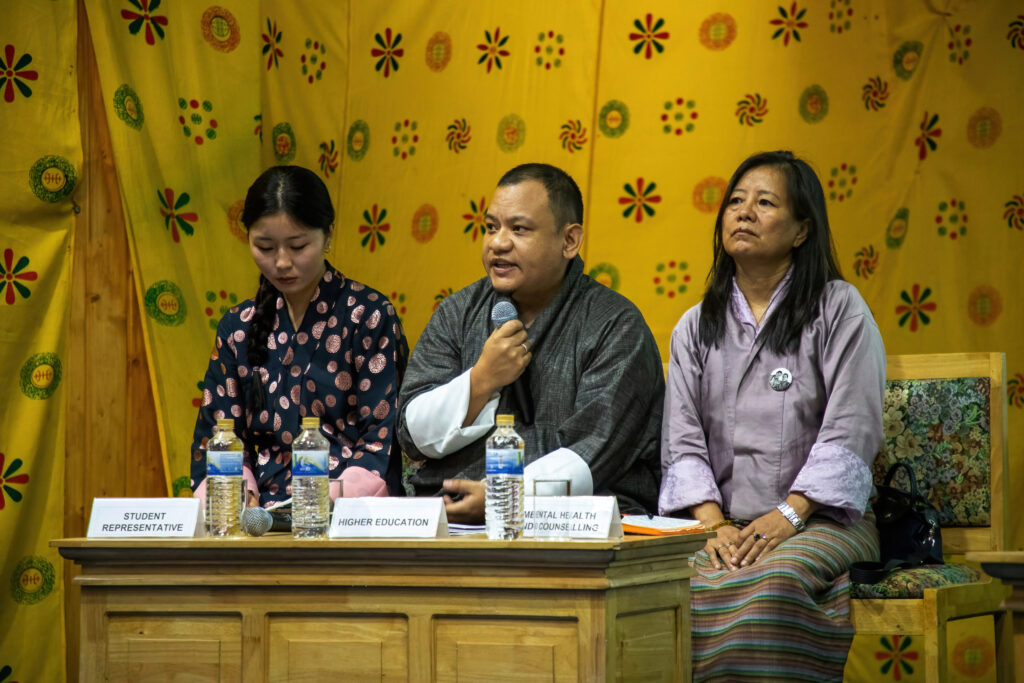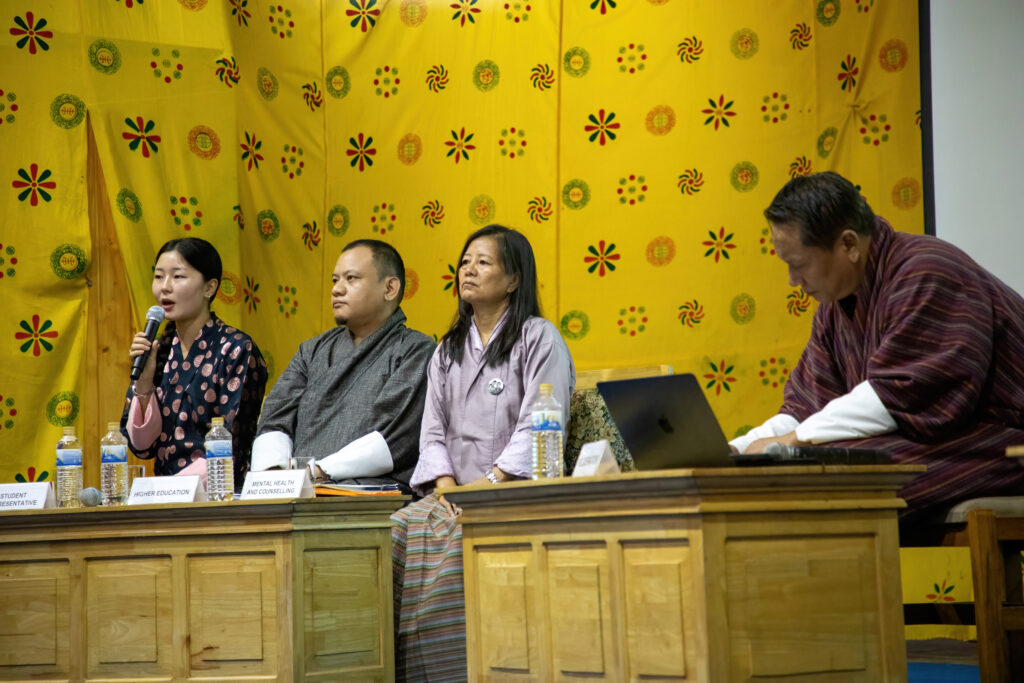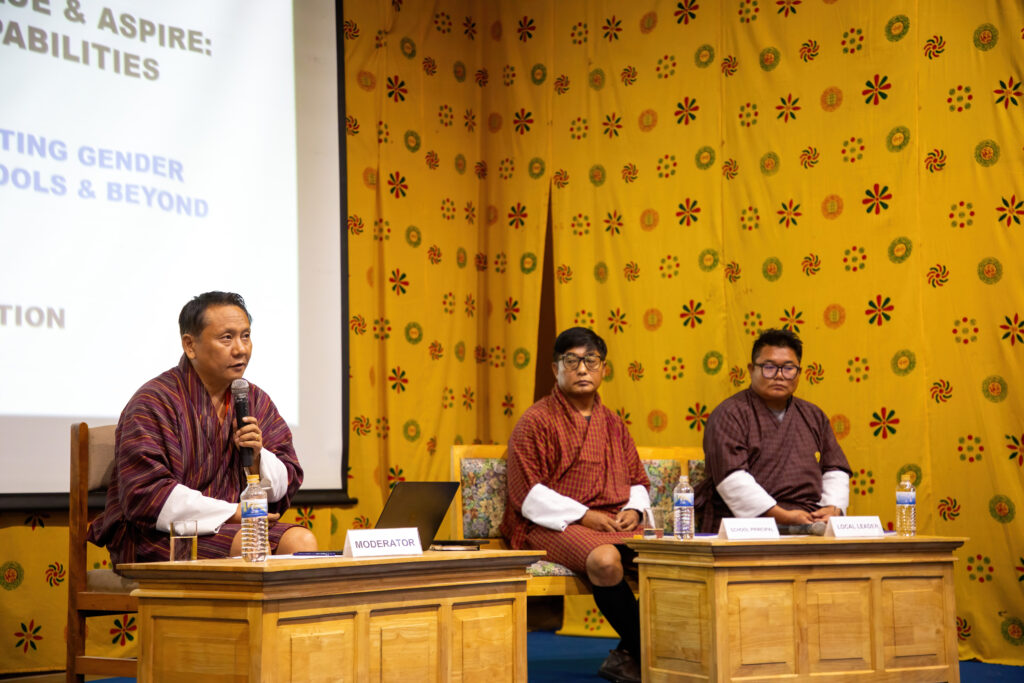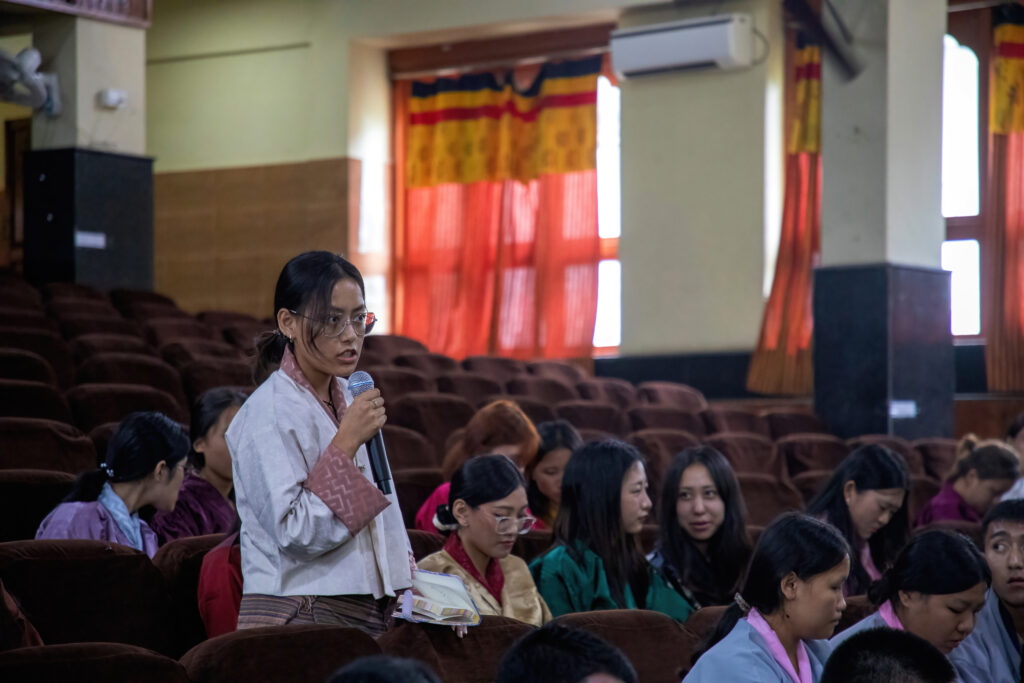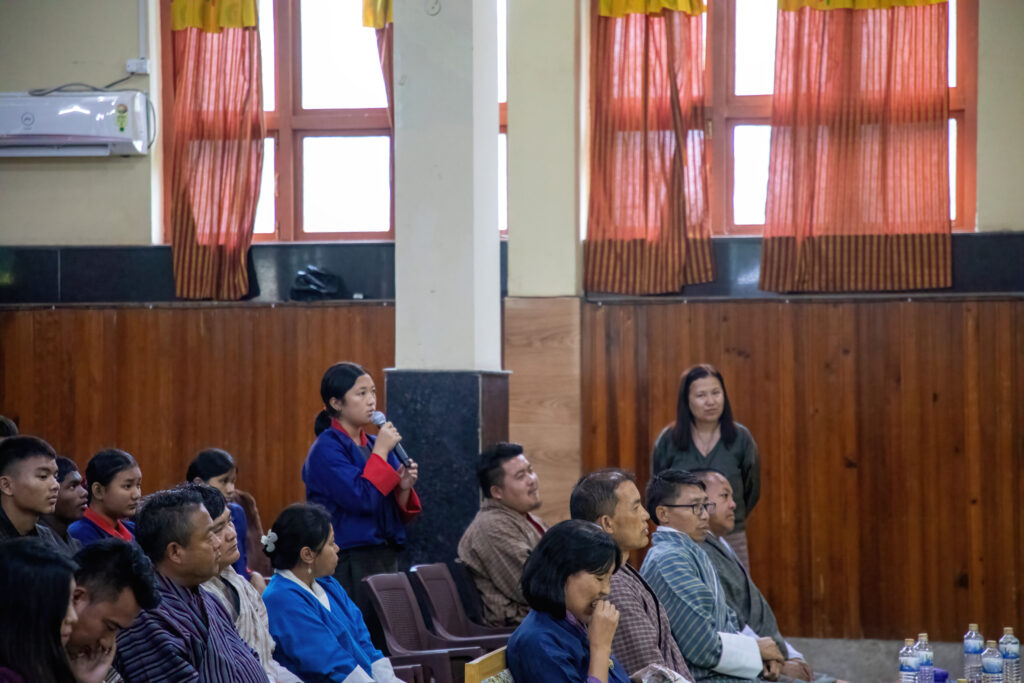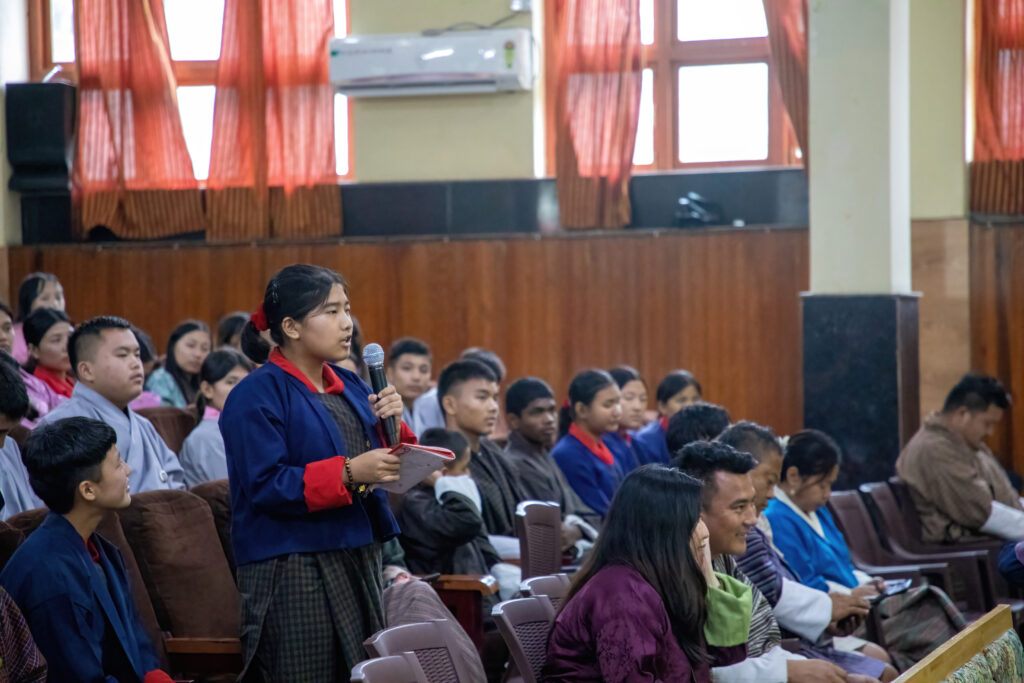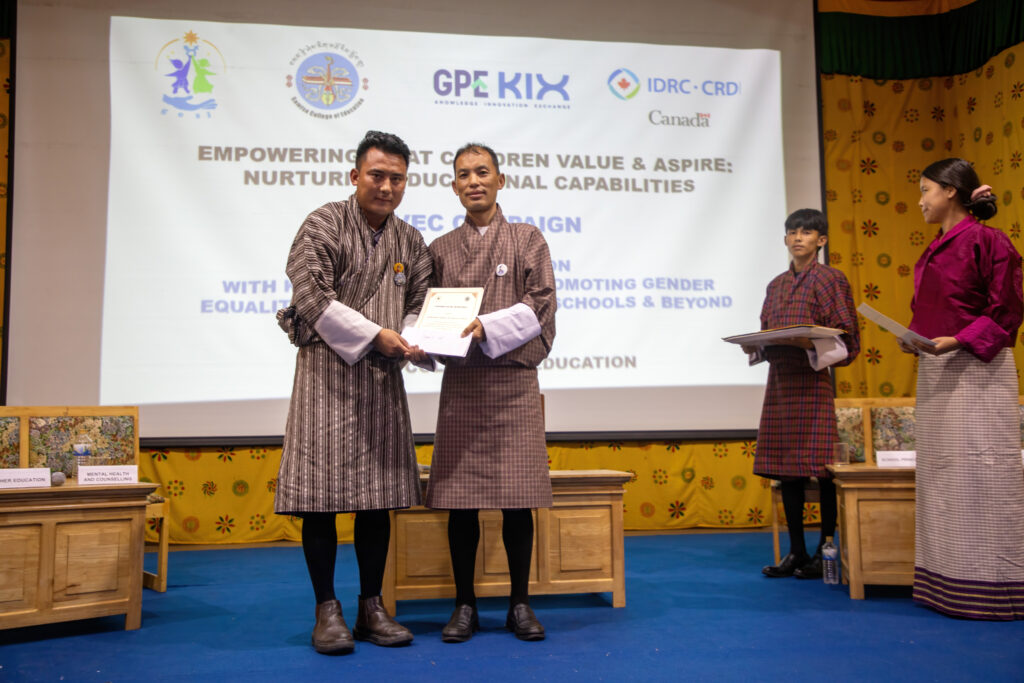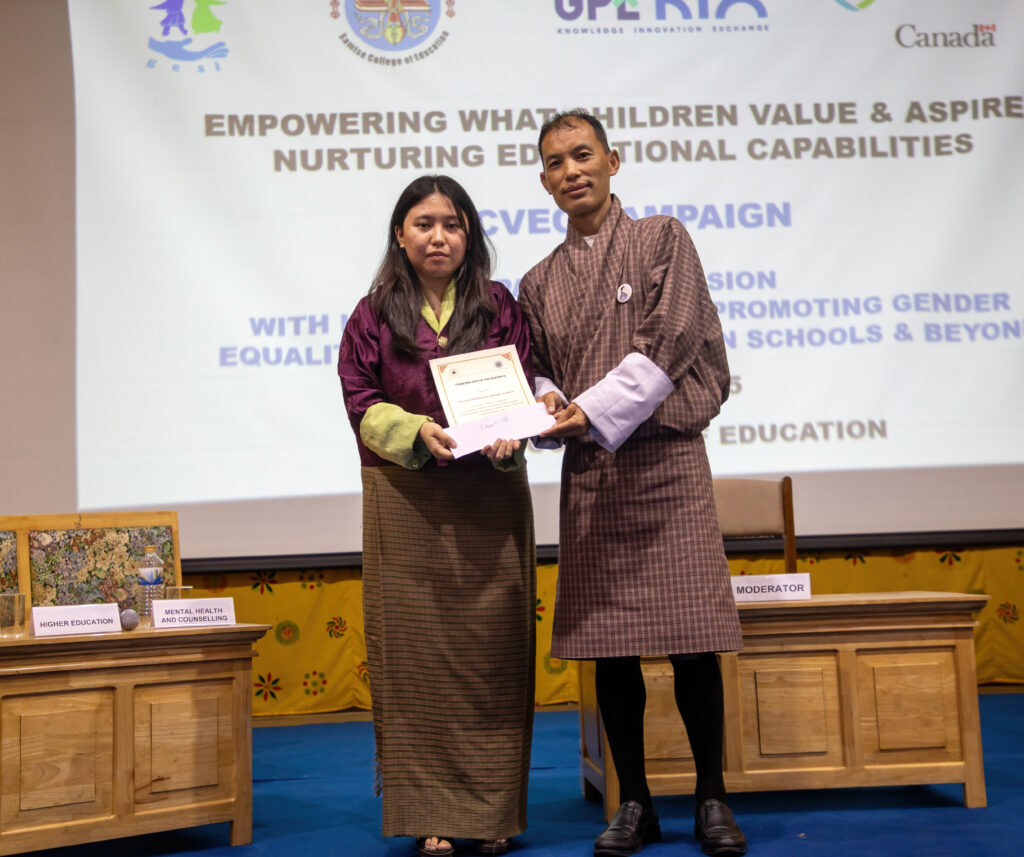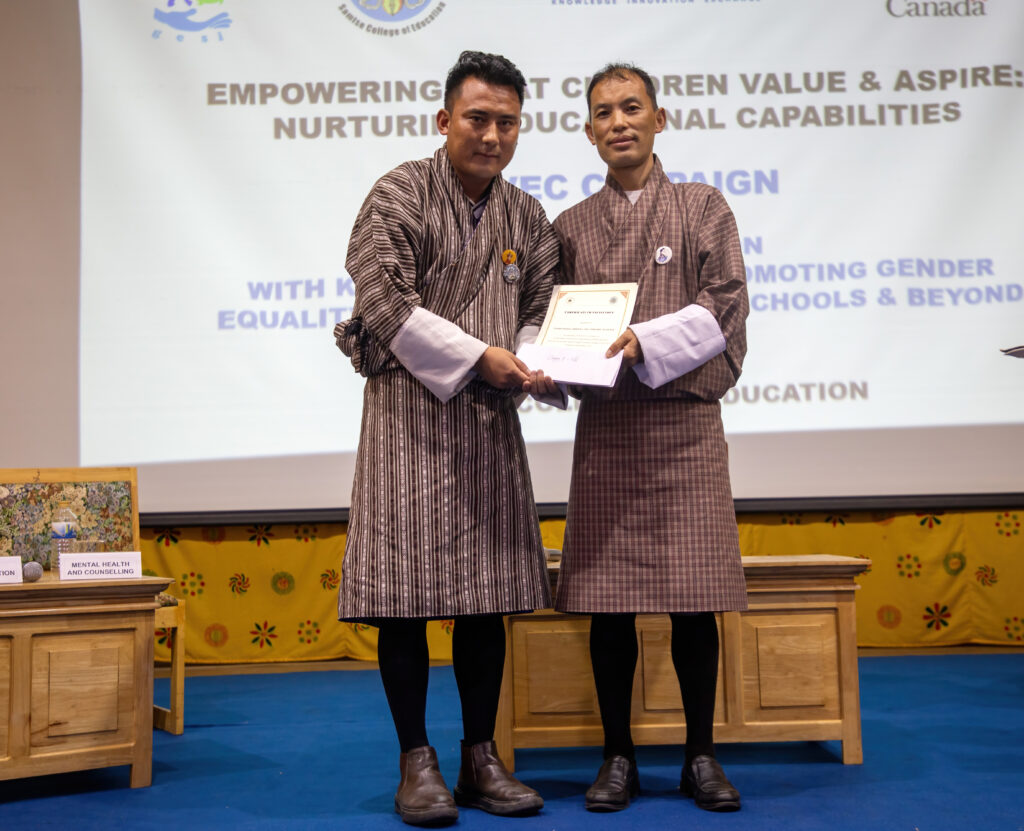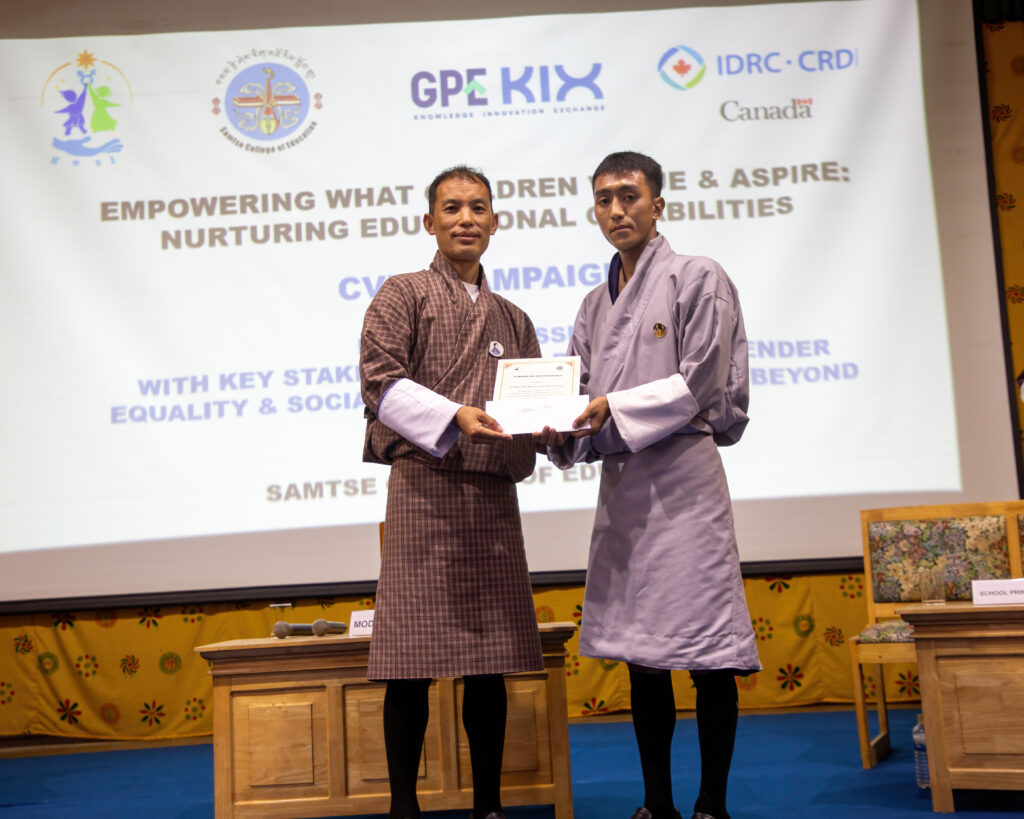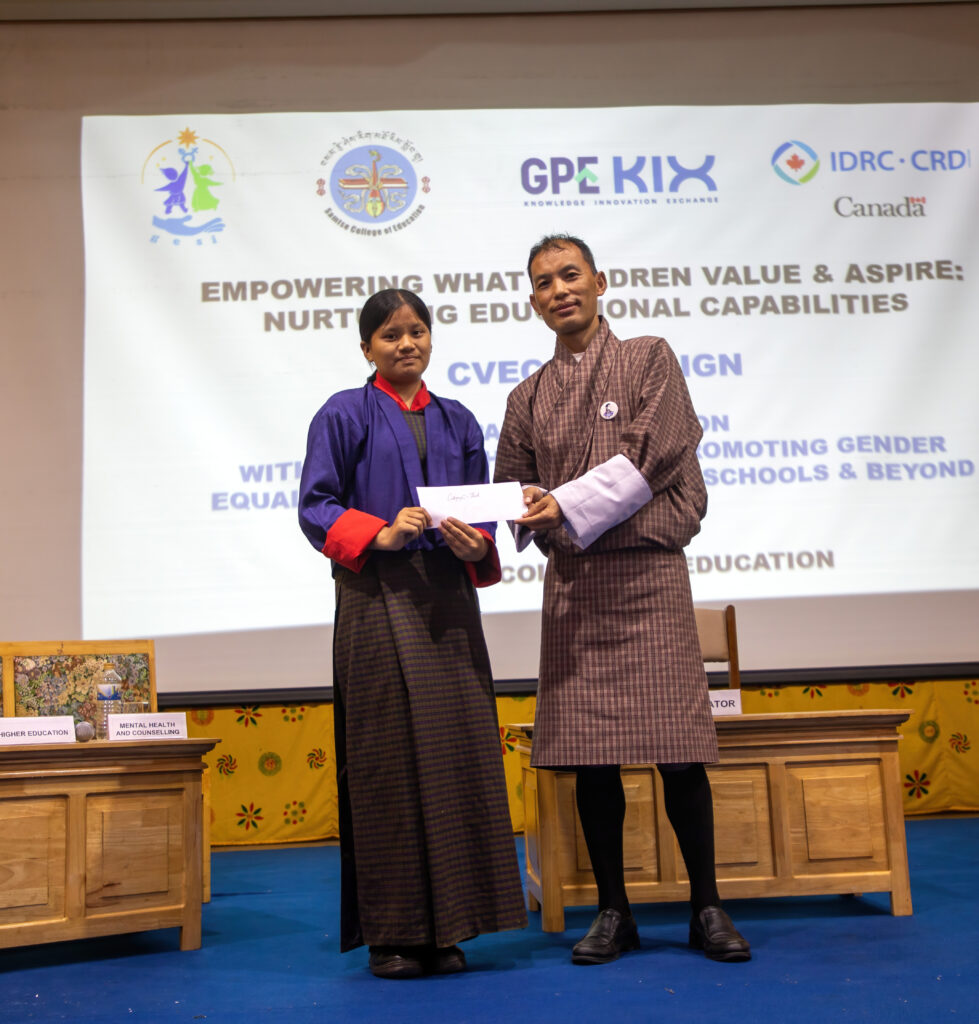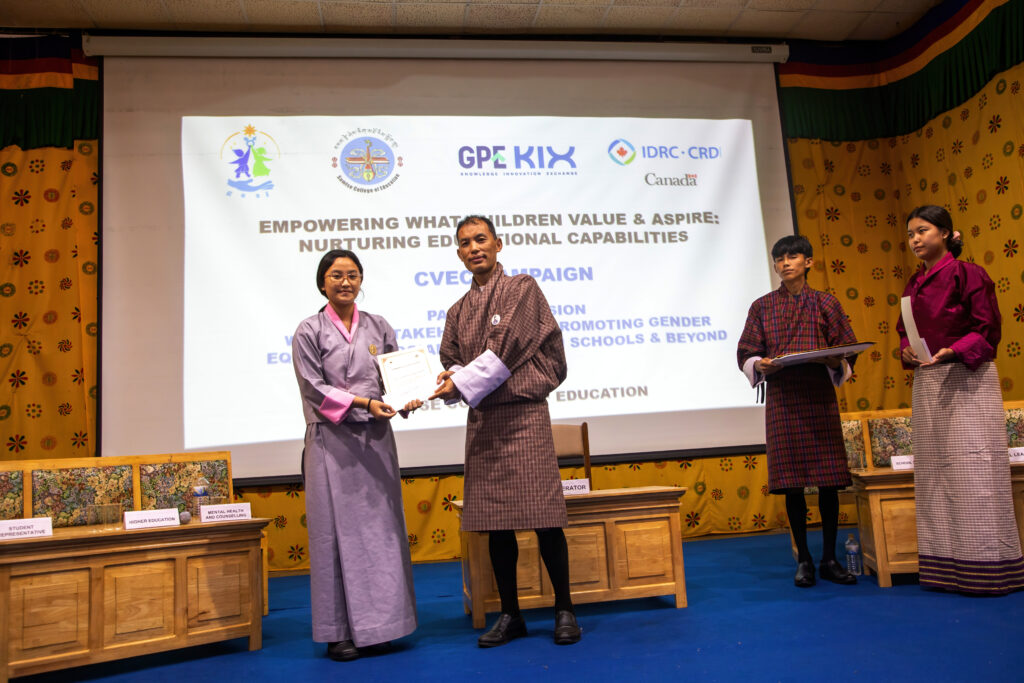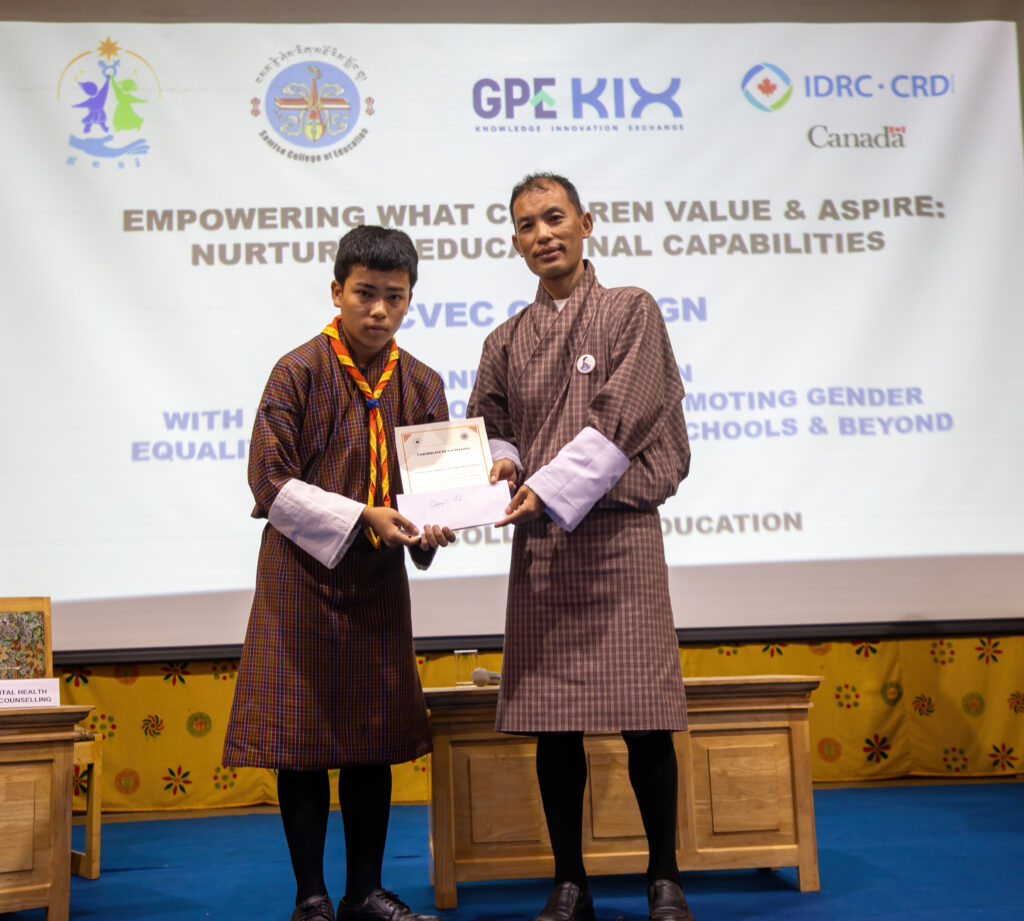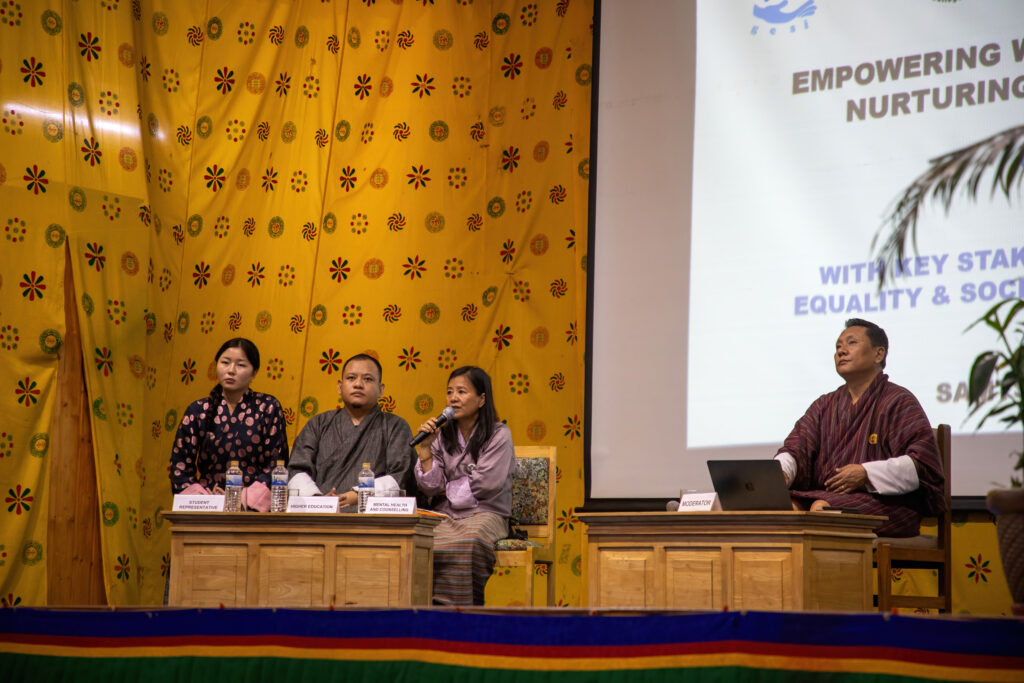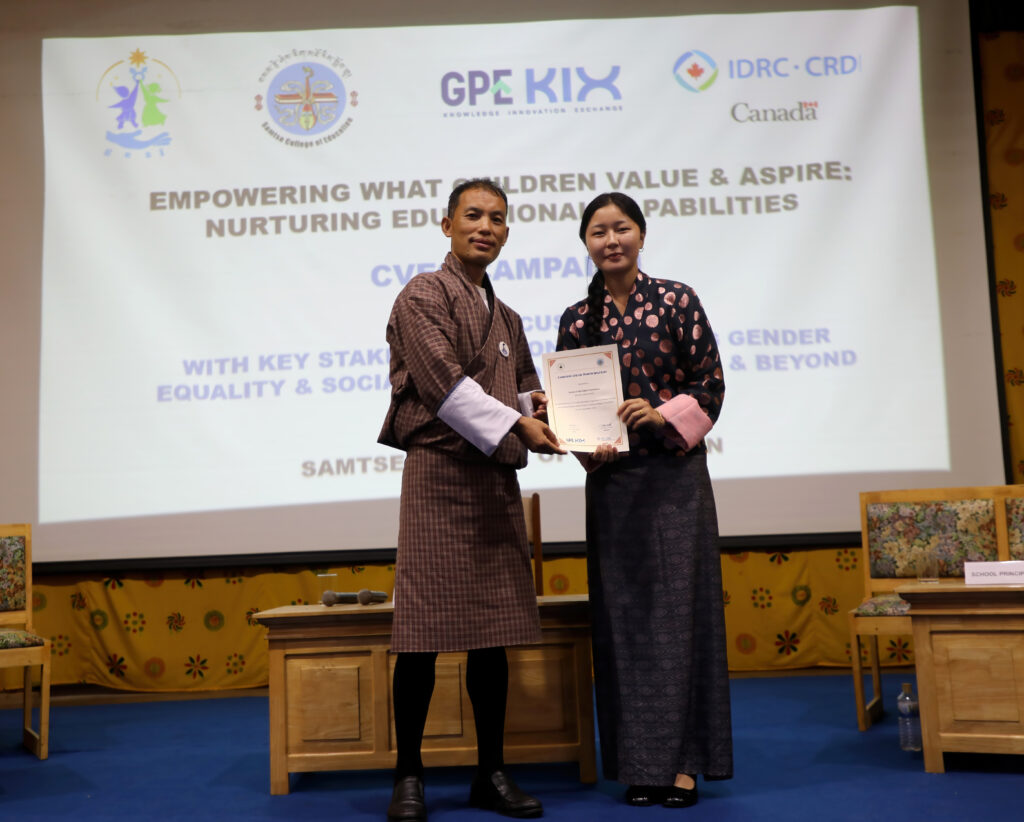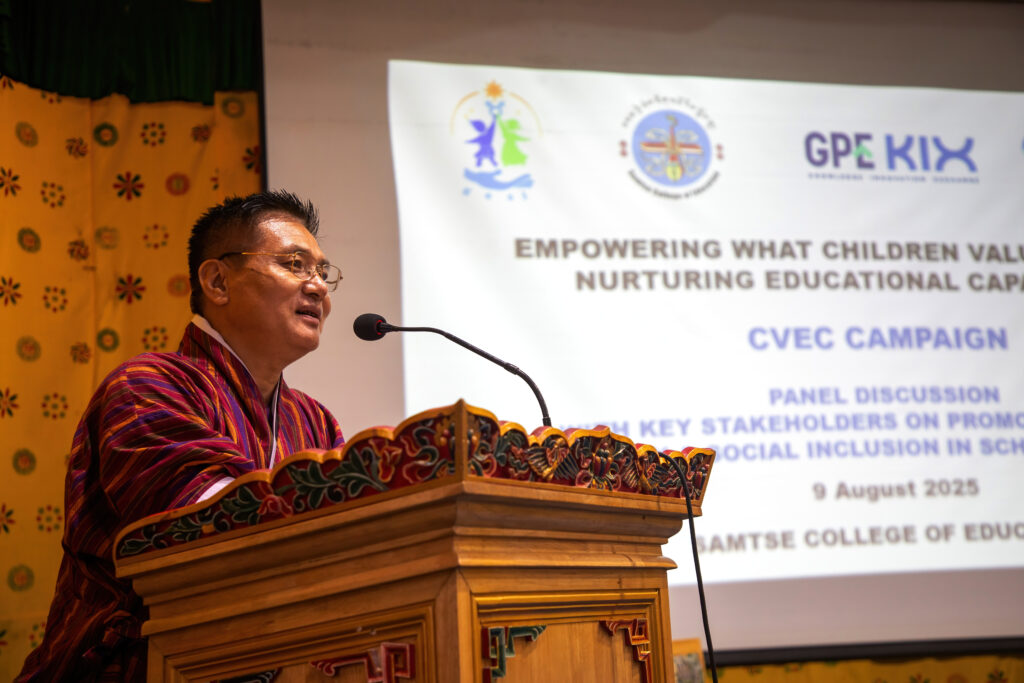On August 9, 2025, the “Promoting Gender Equality and Social Inclusion (GESI) in Schools Building on What Children Value and Aspire To Do and Be” project hosted an event in Samtse bringing together educators, community leaders, and students to highlight challenges faced by girls and marginalized groups in education. The event was attended by school students from the five partner schools, local leaders, school teachers, faculty, Samtse College of Education (SCE) students, and the District Education Officer (DEO). Through video presentations, a panel discussion, open forums, and an awards ceremony, the campaign encouraged important conversations about gender equality.
Dr. Kinley Seden, project coordinator, opened the event with a warm welcome and underscored that every child deserves the freedom and opportunity to become what they value and aspire to be. She emphasized a capabilities approach to child development that highlights essential areas and stressed that promoting gender equality and social inclusion requires nurturing these capabilities irrespective of gender, background, or identity through responsive policies, inclusive school practices, and supportive communities.
The event also highlighted the creativity and commitment of students participating in the GESI Video Competition, encouraging continued use of their voices and talents to advocate for change.
The panel discussion, led by Karma Gayphel, featured local leaders, school principals, mental health and counseling representatives, higher education, and student representatives. Panelists shared key insights on GESI and 16 capabilities indicators, which are highlighted below:
- Love, Care & Respect – Creating a safe environment means more than physical protection; children must feel loved, cared for, heard, and accepted without judgment. Teachers play a vital role in showing respect for students’ freedom, choices, and rights.
- Social Inclusion – Gender equality and social inclusion issues become more visible in middle and high school. Statistics often miss deeper social, cultural, and home life challenges women face; partnerships are needed to address these issues. GESI clubs and inclusive activities help foster belonging and raise awareness.
- GESI Curriculum – The absence of gender-sensitive content in the national curriculum was noted; integrating GESI topics centrally could strengthen understanding from early schooling.
- Participation – Girls’ leadership training provides opportunities for participation, but without tackling underlying social beliefs and family expectations, its impact remains limited.
- Education – While girls’ enrolment is high in the early grades, it declines in higher levels due to social norms, limiting educational attainment.
- Mental Well-being– Body shaming, stigma, and lack of emotional safety affect students’ confidence and mental health; creating safe, supportive spaces is essential.
- Nutritional Well-being – Panelists highlighted that well-being is interconnected, and social norms can even affect access to basic needs, especially for girls during menstruation.
- Shelter & Environment – Safe school environments should be welcoming, inclusive, and free from discrimination, where children feel a sense of belonging. Further, real change must start at home, including discussions about household responsibilities.
- Aspiration – Encouraging students, especially girls, to aspire to higher education and leadership roles requires dismantling limiting stereotypes at home and in the community. Girls’ leadership training is valuable but insufficient without addressing underlying social beliefs and structures.
- Mobility – Social and cultural barriers can restrict girls’ movement and opportunities; changes in community attitudes are necessary to ensure equal access.
- Plan, Imagine & Think – Spaces for open dialogue empower children to plan their future, imagine possibilities, and think critically about equality and fairness.
- Physical Health – The positive example of boys asking for sanitary pads for peers shows progress in addressing menstrual health openly.
- Bodily Integrity – Respect for students’ bodies and autonomy is key; addressing stigma and preventing harassment are essential.
- Religion & Identity – Students should be supported to express their identities and beliefs without fear of exclusion or discrimination.
Following the panel and open forum, videos from the competition were screened. The event concluded with the announcement of winners of the GESI video competition:
- Category A: Tashithang Middle Secondary School won the top three prizes (Nu. 6,000; Nu. 4,000; Nu. 2,000).
- Category B: Yoeltse Higher Secondary School earned first place (Nu. 8,000).
- Category C: Tashithang Middle Secondary School’s “Unseen Scars” took first place (Nu. 10,000), followed by Gomtu Higher Secondary School’s “Aspiration” and “Community Involvement,” and Yoseltse Higher Secondary School’s “Mensuration,” winning second and third places with prizes ranging from Nu. 8,000 and Nu. 6,000 respectively.
This event brought together key stakeholders to address gender equality and social inclusion challenges in Samtse schools, paving the way for concrete actions and greater student empowerment. The winning videos from the competition will soon be uploaded on the website.
